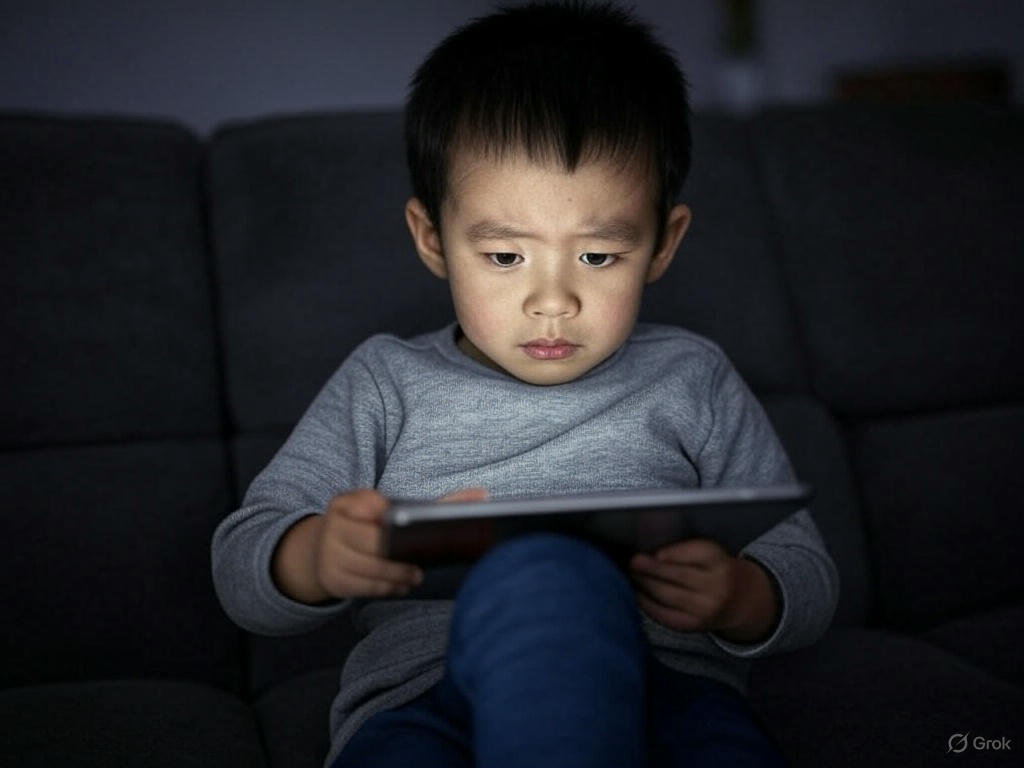How AI Helps in Parenting: Revolutionizing Modern Parenthood
Introduction to AI in Modern Parenting
Parenting in the digital age has undergone a significant transformation, thanks to artificial intelligence (AI). From personalized learning tools to emotional support apps, AI is reshaping how parents interact with their children and manage their responsibilities. How AI helps in parenting is a question many parents are asking as they explore innovative solutions to make their lives easier and more efficient.
AI technologies are designed to simplify complex tasks, provide insights, and enhance the overall parenting experience. Whether it’s monitoring a child’s health or streamlining household chores, AI is becoming an indispensable tool for modern families.
In this article, we will delve into various ways how AI helps in parenting, covering topics like personalized learning, health monitoring, and emotional support. By understanding these advancements, parents can make informed decisions about integrating AI into their daily lives.
Let’s explore the transformative impact of AI on parenting and how it is paving the way for a smarter, more connected family environment.
Personalized Learning and Development Tools
One of the most significant ways how AI helps in parenting is through personalized learning and development tools. AI-powered platforms like Duolingo and Khan Academy adapt to a child’s learning pace, offering customized lessons that cater to their unique needs.
For example, AI can identify areas where a child struggles and provide targeted exercises to improve their skills. This ensures that children receive the support they need to excel academically without feeling overwhelmed.
Moreover, AI-driven educational apps often include gamification elements, making learning fun and engaging. Parents can track their child’s progress through detailed analytics, enabling them to celebrate milestones and address challenges proactively.
By leveraging these tools, parents can foster a love for learning in their children while ensuring their development is on track. This is yet another example of how AI helps in parenting by enhancing educational outcomes.
AI-Powered Health Monitoring for Children
Health monitoring is a critical aspect of parenting, and AI is making it easier than ever. Wearable devices like Fitbit and Owlet use AI algorithms to track vital signs such as heart rate, sleep patterns, and activity levels in children.
Parents can receive real-time alerts if something seems amiss, allowing them to take immediate action. For instance, AI can detect irregular sleep patterns and suggest interventions to improve a child’s rest quality.
Additionally, AI-powered apps like Ada Health provide symptom checkers that help parents understand their child’s health concerns. This is a practical example of how AI helps in parenting by offering peace of mind and actionable insights.
By integrating AI into health monitoring, parents can ensure their children’s well-being while reducing the stress associated with managing their health.
Smart Scheduling and Time Management Assistance
Managing a family’s schedule can be overwhelming, but AI is here to help. Tools like Google Calendar and Cozi use AI to organize tasks, set reminders, and coordinate activities seamlessly.
For example, AI can analyze a family’s routine and suggest optimal times for activities like homework, playtime, and meals. This ensures that parents and children can make the most of their day without feeling rushed.
Moreover, AI-powered virtual assistants like Alexa and Siri can help parents stay on top of their to-do lists. These tools exemplify how AI helps in parenting by simplifying time management and reducing stress.
By leveraging smart scheduling tools, parents can create a balanced routine that benefits the entire family.
Enhancing Communication Between Parents and Kids
Effective communication is the cornerstone of strong parent-child relationships, and AI is playing a pivotal role in enhancing it. Apps like Replika use AI to simulate conversations, helping children express their thoughts and emotions more freely.
Parents can also use AI-powered tools to understand their child’s mood and behavior better. For instance, AI can analyze text messages or social media interactions to provide insights into a child’s emotional state.
This is a clear example of how AI helps in parenting by fostering open and meaningful communication. Parents can use these insights to address concerns and strengthen their bond with their children.
By integrating AI into communication strategies, families can build trust and understanding, creating a supportive environment for children to thrive.
AI-Driven Safety and Security Solutions
Safety is a top priority for parents, and AI is revolutionizing how families protect their children. Smart home devices like Ring and Nest use AI to monitor security cameras and alert parents to potential threats.
Additionally, GPS trackers like Jiobit use AI to provide real-time location updates, ensuring that parents always know where their children are. This is another example of how AI helps in parenting by enhancing safety measures.
AI can also analyze patterns to predict risks, such as identifying unsafe areas or detecting unusual activity around the home. These proactive measures give parents peace of mind and ensure their children’s safety.
By leveraging AI-driven safety solutions, parents can create a secure environment for their families.
Emotional Support Through AI-Powered Apps
Parenting can be emotionally taxing, and AI-powered apps are stepping in to provide support. Tools like Woebot use AI to offer mental health guidance, helping parents navigate the challenges of raising children.
These apps can also assist children by teaching them coping mechanisms and emotional intelligence. For example, AI can simulate scenarios to help children understand and manage their feelings.
This is a prime example of how AI helps in parenting by addressing emotional well-being for both parents and children. By using these tools, families can build resilience and foster a positive atmosphere.
Emotional support apps are becoming an essential resource for modern families, offering guidance and comfort during difficult times.
Streamlining Household Tasks with AI
Managing household chores is a significant part of parenting, and AI is making it easier. Devices like Roomba use AI to automate cleaning tasks, freeing up time for parents to focus on their children.
Smart appliances like refrigerators and washing machines use AI to optimize energy usage and provide reminders for maintenance. This is another way how AI helps in parenting by simplifying daily responsibilities.
AI-powered grocery apps can also suggest meal plans based on dietary preferences, ensuring that families eat healthy without the hassle of planning. These tools save time and reduce stress for busy parents.
By integrating AI into household management, parents can create a more efficient and organized home environment.
Leveraging AI for Parental Education and Resources
AI is not just for children; it also helps parents grow and learn. Platforms like Coursera and Udemy use AI to recommend courses that enhance parenting skills, such as child psychology or effective communication.
Parents can also access AI-driven forums and communities to share experiences and seek advice. This is a practical example of how AI helps in parenting by providing valuable resources and support.
AI can analyze trends and offer insights into parenting challenges, helping parents stay informed about the latest strategies and tools. These resources empower parents to make better decisions for their families.
By leveraging AI for education, parents can continuously improve their skills and create a nurturing environment for their children.
The Future of AI in Parenting
The future of parenting is undoubtedly intertwined with AI. As technology advances, we can expect even more innovative solutions to emerge, addressing challenges that parents face daily.
For example, AI could develop predictive analytics to anticipate a child’s needs or create virtual tutors that offer personalized education. These advancements highlight how AI helps in parenting by pushing the boundaries of what is possible.
Moreover, AI could integrate with emerging technologies like augmented reality (AR) to create immersive learning experiences for children. This would revolutionize how families interact and learn together.
The future of AI in parenting is bright, offering endless possibilities to enhance family life and create a supportive environment for children to thrive.
Conclusion
In conclusion, how AI helps in parenting is a question that continues to evolve as technology advances. From personalized learning tools to emotional support apps, AI is transforming the way parents manage their responsibilities and interact with their children.
By embracing these innovations, parents can create a smarter, more connected family environment that fosters growth, safety, and emotional well-being. The possibilities are endless, and the future of parenting is brighter than ever.
To learn more about inclusive education and disability screening, visit Prashast.org.
FAQ
- How does AI improve communication between parents and children?
- AI enhances communication by providing tools that analyze emotional states and simulate conversations, helping parents and children express themselves more effectively.
- Can AI help with managing household chores?
- Yes, AI-powered devices like smart appliances and robotic cleaners streamline household tasks, allowing parents to focus on their children.
- What are some examples of AI in health monitoring for children?
- Wearable devices like Fitbit and Owlet use AI to track vital signs and provide real-time alerts, ensuring children’s health is closely monitored.



